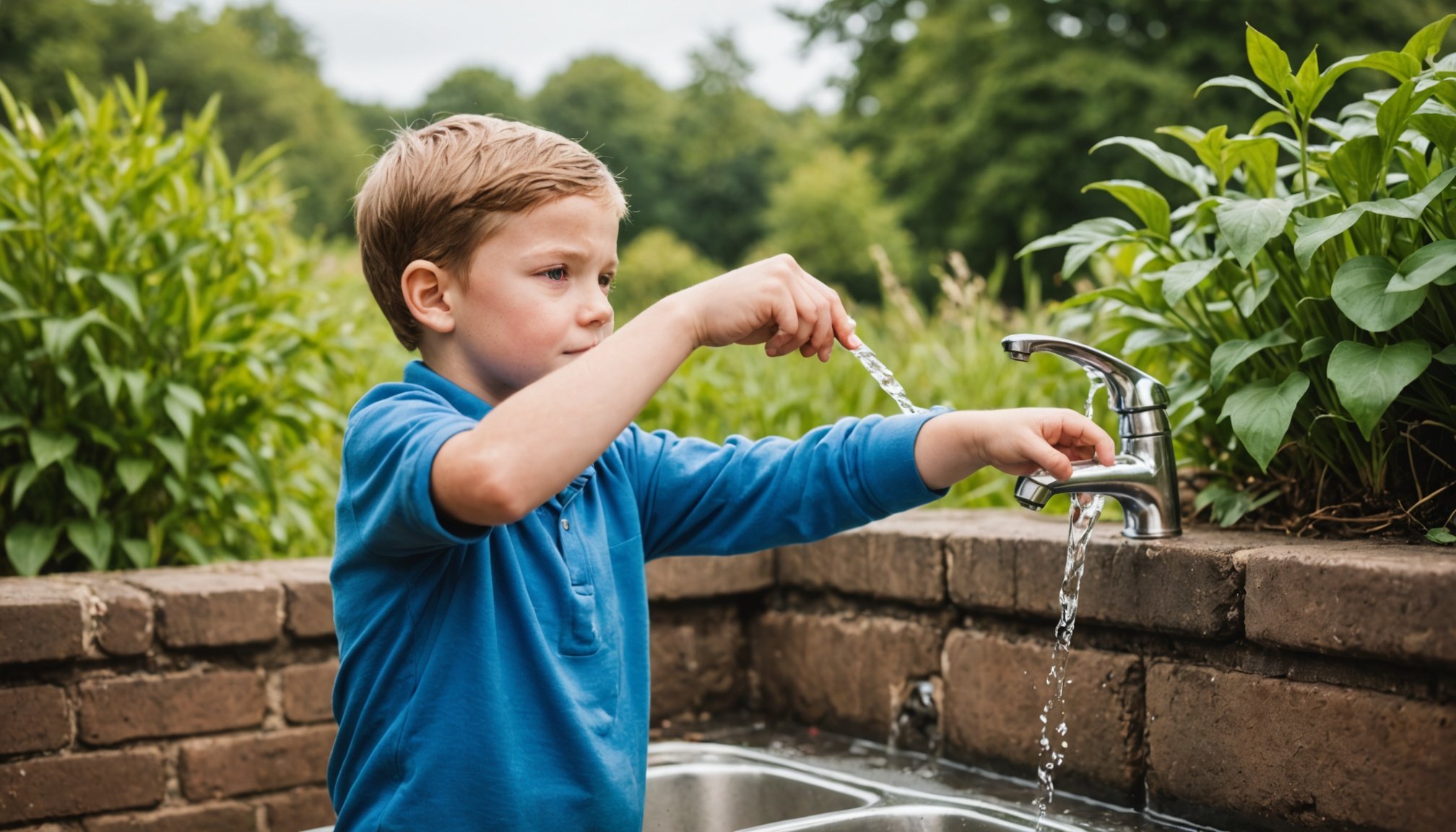Understanding Water Shortages in the UK
As the United Kingdom grapples with water shortages, understanding their current state is essential. Recent assessments reveal a concerning decline in water availability, exacerbated by both human activity and natural factors.
A key contributor is the implications of climate change. Alterations in rainfall patterns, increased evaporation, and unseasonal weather conditions disrupt the delicate balance of the ecosystem. This leads to fluctuating water levels in rivers and reservoirs. The UK, traditionally known for its ample rainfall, now faces unpredictable water supply, making efficient water management increasingly crucial.
Additional reading : Engaging arabic courses for children: learn to read and recite confidently
Moreover, local field studies elucidate the nuances of water scarcity. For instance, regions such as South East England, which suffer from lower rainfall margins, face more pronounced shortages. Local studies indicate that urbanisation—combined with ongoing climate fluctuations—intensifies water demand, putting further strain on supplies.
These studies underscore the vulnerability of certain communities and industries dependent on stable water access. Their findings highlight the urgency for adaptive strategies in water conservation and infrastructure development. Addressing these shortages demands a concerted effort to understand regional disparities and implement tailored solutions to ensure sustainable water resource management in the UK.
Also read : Creating a Community-Centric Smart Park: Enhancing Well-Being in UK Urban Spaces
Importance of Water Conservation
Water conservation is critical for ensuring environmental sustainability and promoting resource efficiency. By reducing water usage, we can significantly lower carbon emissions associated with water extraction and distribution. Economically, conserving water diminishes the financial strain on infrastructure by reducing the need for costly repairs and expansions. It provides significant cost savings to communities and individuals alike, helping to ensure that water remains accessible and affordable.
An essential aspect of successful water conservation is community engagement. Individuals and groups often play leading roles in water-saving initiatives, such as local conservation programs that educate and encourage sustainable practices. Community-driven efforts not only raise awareness but also create a culture of responsibility and collective action toward preserving water resources.
Government policies also play a pivotal role in advancing sustainable water use. Regulations often aim to incentivize efficient consumption through measures like tax incentives for water-saving devices and stricter building codes with water-efficient standards. Governments may support the implementation of large-scale reuse and recycling programmes that help maximise the use of existing water supplies.
Ultimately, achieving water sustainability demands a concerted effort among individuals, communities, and policymakers to prioritize conservation in daily practices and long-term strategies. Embracing water conservation ensures a healthier environment and secures this precious resource for future generations.
Practical Tips for Reducing Water Use
Implementing water-saving tips in your household and garden can significantly contribute to conservation. Understanding and incorporating efficient strategies can make a noticeable difference in water consumption.
Household Water-Saving Strategies
Begin by installing low-flow fixtures and appliances. These are designed to reduce water usage without compromising performance, offering a straightforward way to conserve. Additionally, using smart irrigation systems for gardens can optimise watering schedules based on weather forecasts and soil moisture levels, ensuring plants get the right amount of water. Regular plumbing maintenance is essential to detect and fix leaks promptly, as even minor drips can waste gallons of water over time.
Outdoor Conservation Techniques
Consider investing in rainwater harvesting systems. These systems collect rainwater for gardening and other non-potable uses, reducing your reliance on municipal water supplies. Opt for drought-resistant landscaping, which involves choosing native and adapted plants that require less water. Implementing efficient watering schedules—such as watering during early morning or late evening—can minimise evaporation and maximise the utility of each drop.
Behavioral Changes to Reduce Water Consumption
Adopt mindful practices such as turning off the tap while brushing teeth. Engage in education programs that raise awareness about water conservation among families and schools. Encourage participation in community challenges and initiatives, which can foster a collective effort towards reducing water use in your area.
Understanding UK Water Regulations and Local Initiatives
The UK water regulations outline stringent guidelines governing water usage across the country. These regulations ensure water resources are managed responsibly, addressing both supply and demand. They incorporate policies such as mandatory water metering for new housing developments, setting consumption targets, and promoting efficient usage practices amongst all sectors.
Coupled with national regulations, local community programs actively promote water conservation. These initiatives often focus on raising awareness, offering educational workshops, and providing resources to facilitate sustainable water practices. Local authorities frequently collaborate with NGOs to implement water-saving technologies and behavioural change campaigns. Allotment-based rainwater harvesting systems, for instance, are gaining popularity in urban areas, helping communities reduce reliance on mains water.
Participation in government initiatives and grant schemes is encouraged for both individuals and organisations. These programs often offer financial incentives for installing water-saving devices, retrofitting buildings with efficient plumbing, and developing innovative conservation solutions. By engaging in these initiatives, communities and businesses can substantially reduce their water footprint while benefiting from cost savings.
Through understanding and active engagement with UK water regulations and local programs, individuals can contribute to a sustainable future, ensuring water resources are preserved for generations to come.
Resources for UK Residents
Accessing local resources for water conservation is essential for residents looking to reduce their water usage and manage costs effectively.
Government and Local Authority Resources
UK residents can benefit from a variety of governmental and local authority resources aimed at promoting water efficiency. Many UK water authorities offer financial support and grants for home improvements that enhance water efficiency. These improvements might include installing low-flow fixtures or harvesting rainwater. Residents can reach out to their local water authorities for detailed information and support. Additionally, educational materials are often available to guide residents in making environmentally friendly choices around water usage.
Online Tools and Calculators
A plethora of online resources exist to aid individuals in understanding and tracking their water consumption. Online water usage calculators, for instance, can provide an accurate estimate of one’s household water usage, helping to pinpoint areas where savings can be made. There are also apps available that not only monitor water consumption but offer practical saving tips tailored to the user’s needs. Residents interested in local conservation efforts can find programmes and participate through various online platforms.
Community and NGO Support
Engagement with community and non-governmental organizations (NGOs) focused on water conservation is a great way to contribute to local efforts. These organizations often provide volunteer opportunities that promote conservation practices. Sharing success stories from local initiatives can also inspire further community involvement, creating a network of support for sustainable water use.











